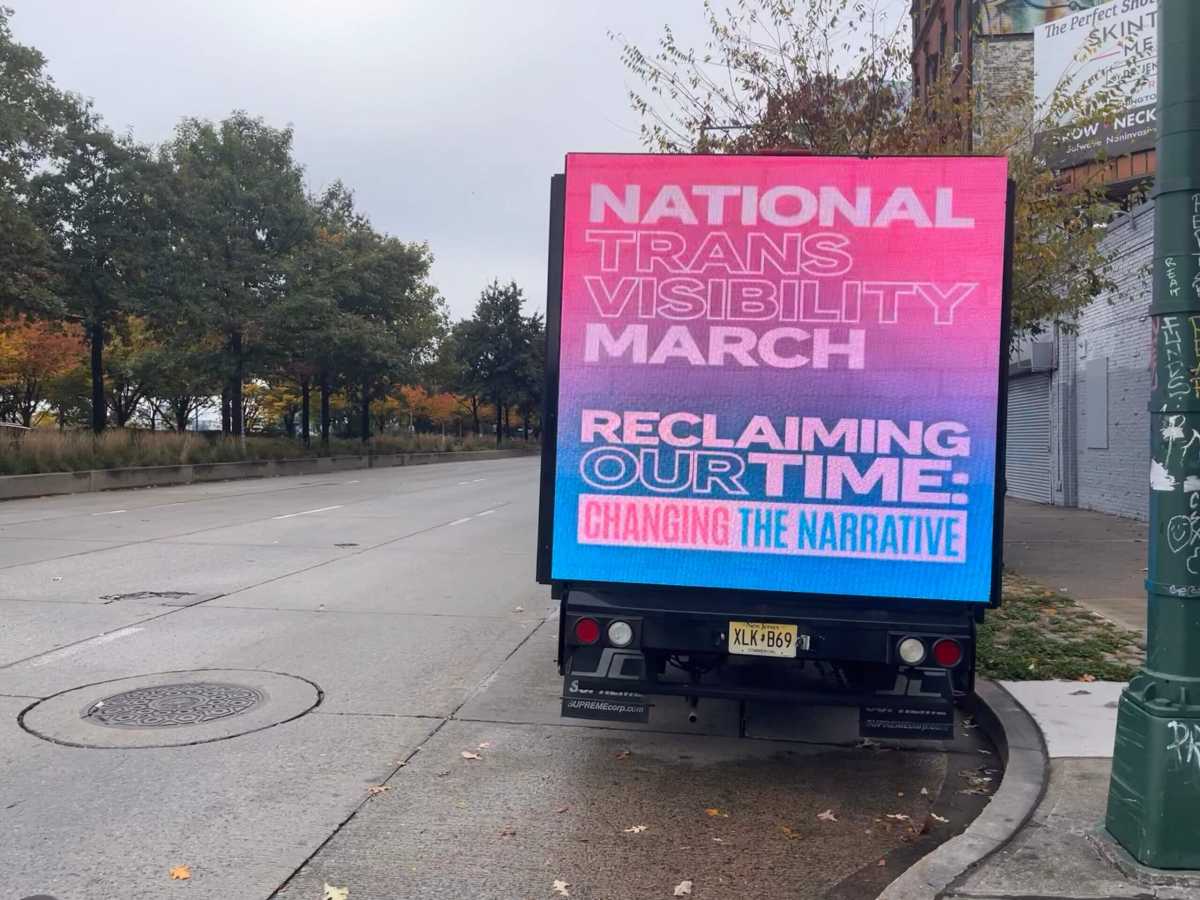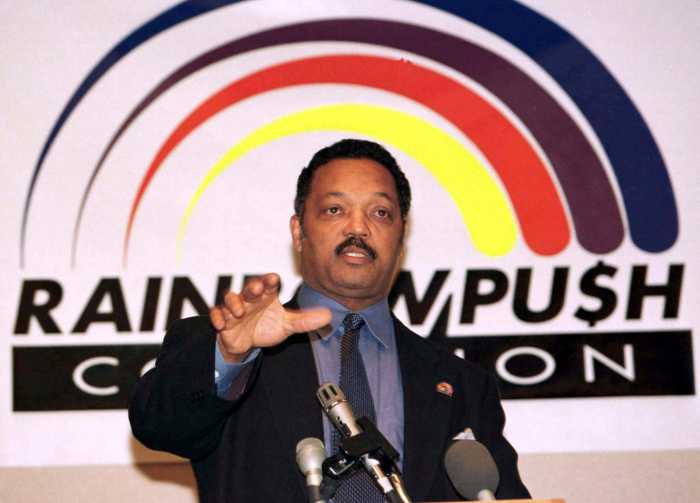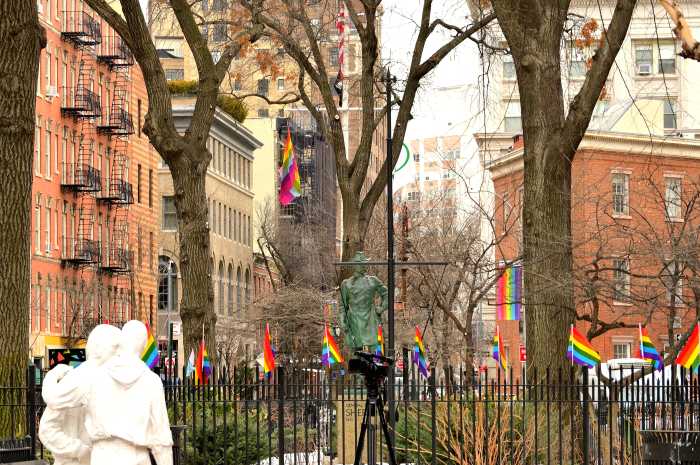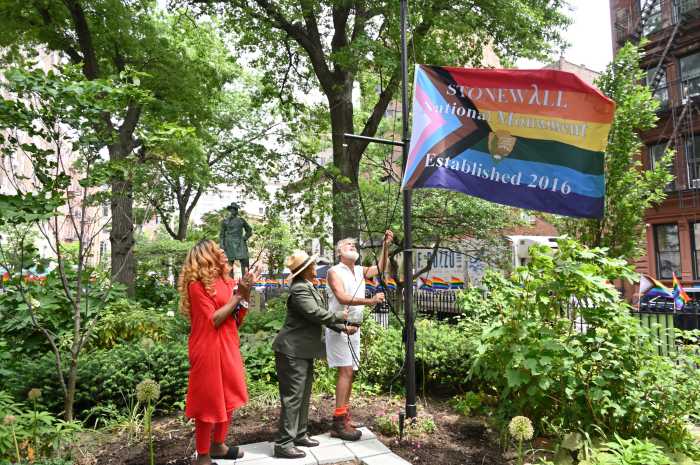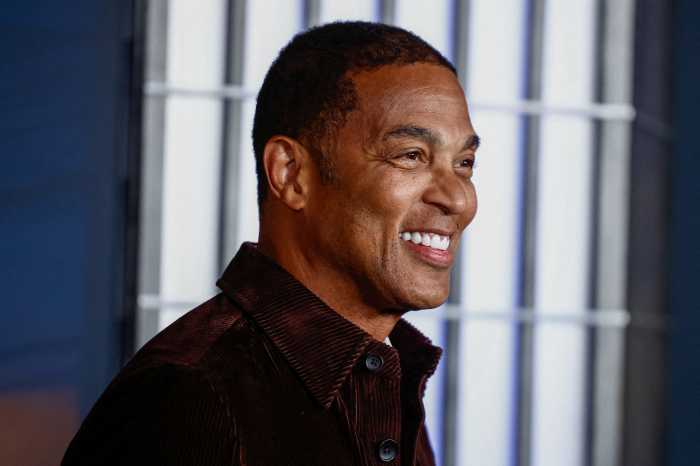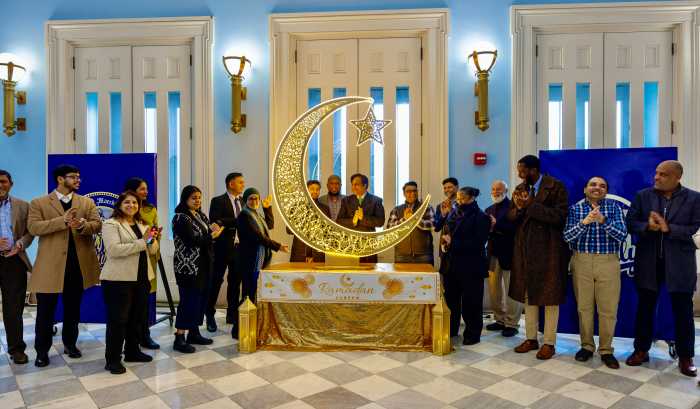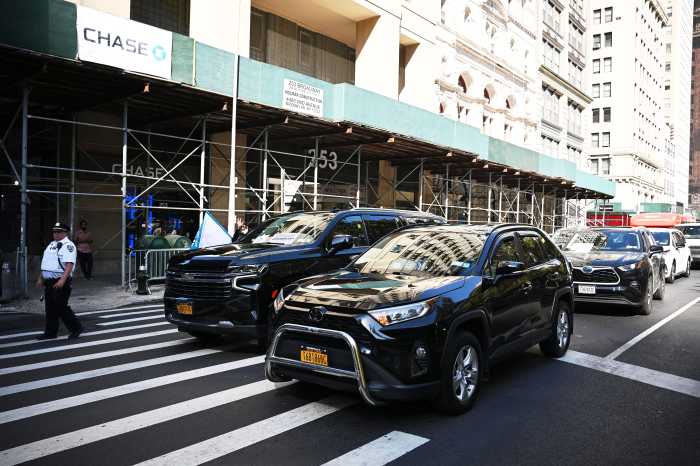The National Trans Visibility March, which promotes awareness, equality, and protection of transgender, gender non-conforming, and non-binary individuals, will return to the nation’s capital on Aug. 24.
The fifth annual march will look to mobilize and energize community members in Washington against the backdrop of a looming presidential election and ongoing attacks on transgender individuals across the nation — all while former president Donald Trump fans the flames of transphobia. (The National Trans Visibility March has endorsed Vice President Kamala Harris for president.)
The march will begin at 1 p.m. at the Human Rights Campaign’s headquarters at 1640 Rhode Island Ave., N.W. The event is expected to conclude at Dupont Circle at around 3 p.m.
The march originated in DC in 2019 with a rally at Freedom Plaza featuring speakers such as “Pose” star Angelica Ross and then-Human Rights Campaign president Alphonso David. While the 2020 march was a virtual affair due to the pandemic, it subsequently moved to other cities, including New York City, which hosted it last year with a march from the Stonewall Inn to the Christopher Street Pier. Last year’s event featured several New York City-based voices, including Kiara St. James of New York Transgender Advocacy Group as well as representatives from New Pride Agenda and Destination Tomorrow, which is headquartered in New York but also has outposts in Washington and Atlanta.
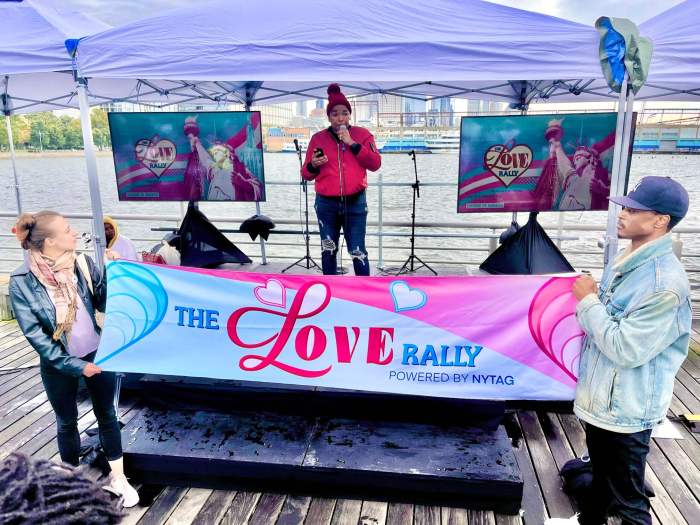
This year’s march will again have a New York influence. The march is partnering this year with The New York Transgender Health Coalition, which includes Amida Care, Colectivo Intercultural TRANSgrediendo, Community Healthcare Network, Destination Tomorrow, New Pride Agenda, and TransLatinx Network.
This year’s theme — “Illuminate. Educate. Advocate.” — reflects an effort by organizers to simultaneously emphasize the importance of visibility while also shedding light on urgent issues facing the community, including the murders of Black trans women, health issues like HIV/AIDS, and the erasure of non-binary individuals. The theme also calls to educate folks about how to visualize a better future for transgender folks and advocate for change inside and outside of the community.
Organizers are hoping to carry out this mission in a way that avoids leaning into negativity — especially given the importance of standing up for pro-equality political leaders at a critical juncture in the fight for trans rights.
Hope Giselle-Godsey, the newest leader of the National Trans Visibility March, told Gay City News in an interview on Aug. 16 that the goal is to mobilize transgender, gender non-conforming, non-binary individuals, and members of the broader queer community who want to be on the right side of history.
“As we know, just because we’re all queer does not mean that we all believe or think the same things,” said Giselle-Godsey, who stepped into her leadership role earlier this year after taking over from co-founder Marissa Miller. “Get up there and go and vote yourself. Don’t trust that just because you know you have trans friends that are really into politics, they’re going to vote in your best interest, because they might not.”
To that end, Giselle-Godsey underscored the point that trans and non-binary voters are well-rounded voters just like anyone else — and the broader population should not assume they are just basing their voting decisions on a limited number of specific trans issues.
“I think folks believe that as trans people, the only thing that we care about is being able to have our pronouns respected and go to the restroom right or play in sports that folks don’t want us in,” Giselle-Godsey said. “And that’s simply not true. We do care about voting. We do care about the right to have bodily autonomy. Those are things that we are explicitly naming in some of the conversations that we’re having socially.”
She added: “They’re the exact same things that your mom and your father and your brother and your cousins and your sisters are fighting for. We’re just not given the opportunity to be taken seriously on anything outside of our gender identity or expression. And so I think that we’re reduced to headlines that make it about those things when we are so much more and we care about so much more.”
Like in previous years, there are also several related events associated with the National Trans Visibility March, including the Torch Awards, a fish bowl conversation with a panel and workshop series, and multiple religious-oriented events — including a faith leaders prayer and press conference as well as a march by faith leaders to the Human Rights Campaign headquarters.
“Trans and TGNC folks are religious, right?” Giselle-Godsey said. “There are so many people that think that we should not be. There are people that don’t understand how we can be, but there are folks within the community that believe in a God, that believe in a Buddha, that have spiritualist practices.”
The religious component, Giselle-Godsey explained, is just one of multiple examples of how the march is “creating spaces for everybody,” including for trans men, trans women, people with disabilities, and sober individuals.
Among other groups, organizers are working to carve out space for youth — and that’s where the Torch Awards come in. That event, Giselle-Godsey said, will provide an opportunity to showcase some of the emerging leaders and the future of the movement.
“A lot of us are jaded. A lot of us have been beaten down by the system and by the social order as it is,” Giselle-Godsey said. “These kids have not, and so when we get tired, when there is no more room for hope to sell… there needs to be a youth presence and a youth voice willing to step up.”

